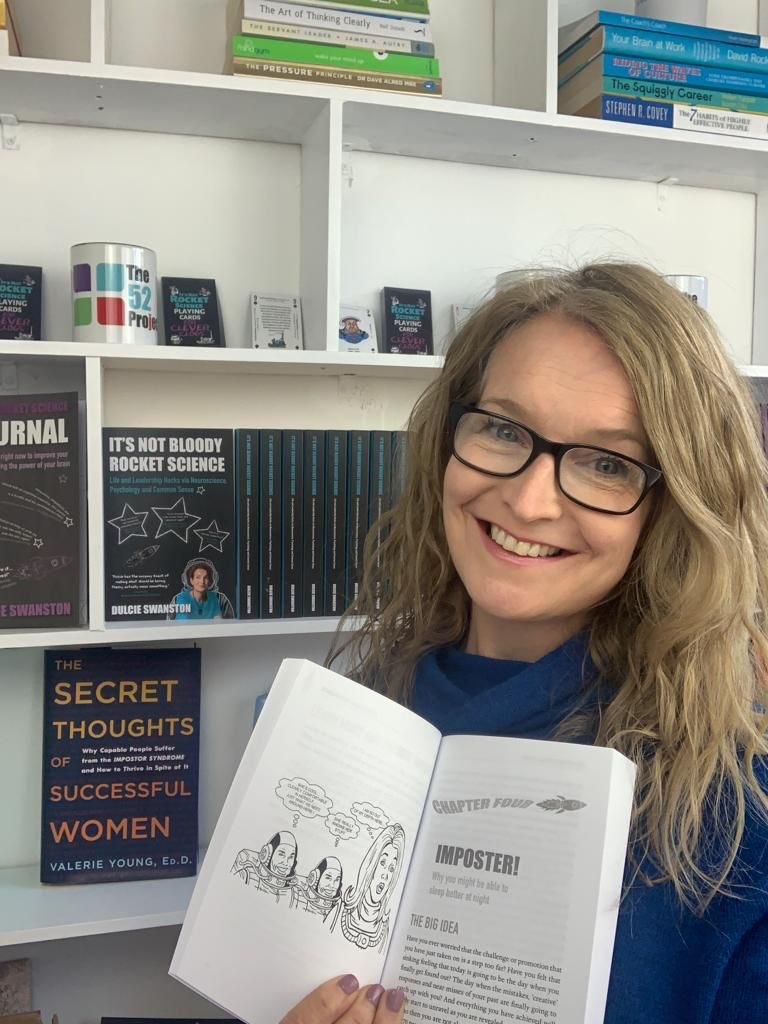Simplifying and sharing the neuroscience and psychology of how we feel and why we behave in the way we do is how I help my leadership clients to thrive.
One thing comes up more than any other topic in my work with senior clients – a feeling that you don’t deserve to be promoted or that you don’t have the skills to progress any further and that you should quit whilst you are ahead in case you get ‘found out’.
The technical term given to this (very normal) feeling in 1978 by two American psychologists was ‘Imposter Syndrome’.

As a Mum to teenagers, my school days are well gone but I often reflect on how my choices all those years ago affected my approach to helping clients with the challenge of overcoming Imposter Syndrome many years later!
At my Yorkshire comprehensive, the most progressive A Level on offer was Sociology. Having snapped that up, I ended up doing A Level’s in English Literature and Biology. This strange combination paved the way for what I have been fascinated with ever since – how our bodies and brains work, the cultures we create as social human beings and the stories we tell ourselves to make sense of our relationships and experiences at work and at home.
Thus, when I share my thinking with clients on Imposer Syndrome, I first of all play with words! I de medicalise the term, referring to ‘Imposter Thinking’ instead. I then shorten this to ‘it’, to make it physically smaller and thus, metaphorically, easier for clients to manage.
I help clients consider the sociology of ‘it’ and how, in particular, this seems to affect women and minorities.
I also help clients get a super-fast understanding of the biology!
Put simply, ‘it’ is a normal and natural reaction to your brain experiencing something new and feeling a bit stretched.
We might like to think that we embrace change and love a challenge, but speaking to neuroscientist Dr Iain Price, you get a slightly different perspective. He has greatly helped me understand two things:
1) We have a finite amount of brain ‘fuel’ to spend in a day and no matter what we tell ourselves about ‘pushing on through’ it simply doesn’t work. See this related blog for more detail.
2) To conserve that precious brain fuel, your brain plays ‘tricks’ on you. It creates excuses -‘do it tomorrow’, or ‘quit whilst you are ahead’. These sound convincing but our brain creates them not because they are true, but to conserve brain fuel. Moreover, your brain knows exactly the right bespoke excuses to slow you down because it is your brain!
This means that the fundamental problem when progressing our careers is that we can get in our own way because our brain is wired to resist change and will, therefore, invent all sorts of plausible sounding excuses to hold usback. Dr Iain writes:
Your brain runs on extremely complex ‘wiring’ that’s fuelled by a cocktail of chemicals, and requires a reliable flow of blood, oxygen and biochemical energy to operate – even just to stay still. Learning new skills or changing a behaviour requires extra energy investment to make the new neural pathways needed. Unless you are mindfully controlling your thoughts, your brain tends towards to keeping you wired to the status-quo and it will make coherent excuses to justify being stingy with its fuel!.
This is where the magic can happen! Once we know that it is normal to make excuses and feel a bit of ‘it’ when we are trying to change a habit, develop ourselves or are faced with a new experience, we have a super-power! We are onto the biggest person trying to hold us back – ourselves!
My favourite question to ask clients might help you too.
‘What would you do if you knew you could not fail?’
If you have a moment and a pen to hand, try some automatic writing. Without paying attention to your grammar or creating proper sentences, write down your answer and keep writing without pausing for 5 minutes.
Read back what you have written.
What could you do about that?
And if you need a coach to help you work through your scribbles, give us a shout! There are many other super simple practical activities in my book It’s Not Bloody Rocket Science – The Journal. My clients swear by it to help them beat the tricks their brains play on them. I hope it might help you too.













